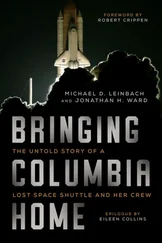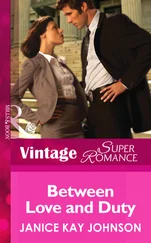“Damn,” he whispered. He sank down on a bar stool in his kitchen. “Maddie...”
“Nell.” She sounded upset, maybe even angry. “I’m Nell.”
“Nell.” He cleared his throat. “When did you remember?”
“I didn’t.” Now her voice was small and tremulous. Oh, yeah, she was all over the emotional map. “I still don’t. Exactly. That’s why you scared me.”
Stunned, he said, “But when I said your name, you knew.”
These pools of silence had such emotional density, he had trouble surfacing to draw a breath. Her distress was nearly unbearable when he couldn’t read her expressions, couldn’t touch her.
“Yes,” she said. “But not until I heard you say it. It was like...something I already knew slipped into place. See, I do have memories. Jumbled ones. When I went online and saw pictures of my parents, I knew their faces.”
“You were scared because I could identify you.”
“I’ve always been scared. I never wanted to remember. I know I was abducted, but...I think I was running, too. I think I knew someone was after me. Maybe even that...whoever it was might kill me.”
A chill crawled up his spine, one that reminded him of that night, when he’d stood in the dark staring at that bike and the blood that had pooled in the red dirt.
“You don’t think your parents could protect you.”
“No. Or else...”
The chill spread, lifting the small hairs on his forearms. “You’re afraid of them, too.”
“Maybe,” she whispered. “I don’t know.”
Now he was the one to let the silence grow while he tried to think.
“Why did you call?” he asked at last. “Why are you admitting this to me?”
“I thought maybe I could trust you. It’s been hard, never telling anyone. And not knowing if I’m really crazy.”
“I don’t know a lot about amnesia,” he admitted. “I’ll tell you this. I encourage my officers to listen to their instincts. When we feel unease, or fear, there’s a reason. We notice things our conscious minds don’t acknowledge. That doesn’t mean they aren’t real.”
Nell was quiet for a minute. When she said, “Thank you for saying that,” she sounded calmer.
“What is it you thought you could trust me to do?”
A hitch of her breath told him her anxiety had kicked up again. “I don’t know! I don’t know what I want!”
“Maybe,” he said, “it’s time you came home.”
Silence again. “Do you know them? My parents?”
“I’ve seen your mother. Never talked to her. Your father I have occasional dealings with. They seem like decent people, Nell. I’m pretty sure not a day goes by that you’re not on their minds.”
She was panting now. “I need to think about it.”
“Okay,” he said, making his voice gentle. “That’s good, Nell. There’s no hurry. I won’t pressure you. I promised.” He couldn’t have even said where he was; he had never been focused so intently on the tiniest whisper of sound coming through a phone receiver. All he could see was her face. Not the one in the photo, but the woman in the parking lot. His chest felt bruised. “Maybe I can call you tomorrow. We can talk. Not about this. Just to get to know each other. If you have to trust me, you should know me.”
The small sound she made might have been a laugh, or a sob. “Yes. Thank you. I’d like that. I work until five....”
“In the evening, then. I’ll call.”
“You’ve been...very kind. Thank you, Captain.”
“Colin.”
“Colin. Goodbye.”
He said goodbye, too, then sat where he was, trying to understand why he felt so much.
Damn it, he had to think like the cop he was. He wasn’t twenty-two anymore with a hero complex.
On the face of it, her story was unlikely. He’d never believed in the kind of amnesia that gave someone an excuse for having walked away from a failed life. Short-term memory loss, sure. After trauma, people often lost the previous day, say, although usually only temporarily.
In her case, if she were telling the truth, she sounded as if she’d wanted to forget. The head injury had helped her along. Given her subconscious justification to ditch memories that were too painful to hang on to.
He didn’t know if that made sense, but it was the best he could do. He was confident she wasn’t a con artist who’d learned that the Dubeaus were well-to-do and thought she’d get something out of them. Nell Smith was Maddie, no question. It wasn’t just her features that made him so sure; it was what was in her eyes. Big and brown and beautiful, those eyes had been hiding so much. They still were.
There in the quiet of his own kitchen, Colin made a harsh sound. The only explanation for his own credulity was that there was simply something about her. There always had been.
And that would have to do until he figured out the rest.
CHAPTER FOUR
“I’M NOT SURE you’d recognize big parts of town even if you hadn’t lost your memory,” Colin said. “Twelve years is a long time.”
Transfixed by the quiet rumble of his voice, Nell clung to her phone. She’d silenced it earlier when she went to her book club, but hated the idea of missing a call from him. She had become so hungry for his calls, she felt pathetic. How embarrassing if he ever knew she had put his photo on her refrigerator door where she could see it when she paced through her small apartment talking to him. This call had started with him wishing her happy birthday—Maddie’s birthday. She was still reeling from knowing when she was really born. The fact that he’d remembered and wanted to call today of all days had brought her close to tears.
“I checked the town out online,” she told him. “To see if anything looked familiar.”
“Did it?”
“Maybe the river. And...and a park.” She had started breathing hard when she looked at those pictures.
“There are only two large parks within city limits.” A new thread in his voice was hard to single out and identify. Compassion? Pity? “Angel Butte and River Park, which combines a couple of picnic areas, a playground, a boat landing for canoes and kayaks, and maybe fifteen acres of old ponderosa forest.”
The always-hovering panic clutched at her throat. “That’s where you found my bike.”
“Yes.”
She didn’t know why her hands were shaking. Whatever happened was a long time ago. Of course she knew it was that park. And didn’t she want answers?
I don’t know. No. Maybe.
She focused on his face in the newspaper photo she could have seen clearly even with her eyes closed. Those watchful, penetrating eyes made her feel safe.
Which didn’t mean she wanted to talk about this anymore.
“You’ve never said where you grew up.” He had promised—hadn’t he?—to let her get to know him so that she could trust him. He’d been keeping that promise, although in their four previous conversations he had mostly told her about his job and some of his frustrations. Otherwise, they’d talked about unimportant things. Their plans for Thanksgiving, the way they celebrated holidays in general, national politics, music, movie and book tastes. It had occurred to her they’d had the kind of conversations that newly dating couples had.
“I grew up right here,” he said simply. “If I didn’t think of Angel Butte as home, I’d have looked for another job a long time ago.”
“But you said your sister is here in Seattle.”
He was silent for a moment, making her wonder if this were more personal than he wanted to get.
He promised, she told herself stubbornly.
“My parents divorced when I was sixteen and Cait was only ten. My mother has moved around some. Cait ended up going to Whitman College, and she’s now in grad school at the UW.”
Читать дальше












